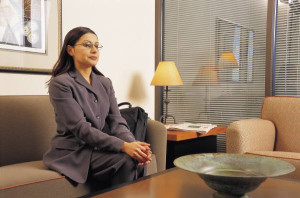 In my post Checklist for Getting a Job When You are Over 50, someone commented they would like to see a “companion piece where you explain to 30-something hiring managers how to treat 50-plus year old talent with a bit of respect, instead of making them dance.” I responded to the person that I would address the issue.
In my post Checklist for Getting a Job When You are Over 50, someone commented they would like to see a “companion piece where you explain to 30-something hiring managers how to treat 50-plus year old talent with a bit of respect, instead of making them dance.” I responded to the person that I would address the issue.
Dear Hiring Manager, I am older than you. I know that and so do you. Let’s get that out-of-the-way up front. I have the qualifications you are looking for. I am willing to accept the salary your company is offering. I want to be treated like anyone else you are interviewing for the position. Age is only a number. My health is great. I take of myself physically, mentally and spiritually.
But what I want you to know is that I understand you have some reservations about hiring me. Here are some of the issues you are concerned about.
1—I want your job—No I don’t. I have been there and done that. I want work/life balance. I traveled, worked overtime, and crazy hours. I realize now that it isn’t conducive to a healthy life and relationships. I want to work hard and be a contributing member to your group when I am at work, but I want to have a home life.
2—Not willing to learn—I have forgotten more than you have learned. I typed my first resume on a typewriter. The résumé you have in your hand was done on a computer. I am proficient at computer use. I can play games on the computer, but usually don’t. I can find anything you want on the Internet and use it for email. I learned arithmetic without a calculator. My generation is the bridge generation from no technology to what we have today. We learned it as it was developing.
3—Can’t work with younger people—Don’t worry I know I’m not your parent or grandparent. I am here to do the job. The job you tell me you want me to do. I have worked with people with all sorts of personalities. I liked some and others not so much. But I respect authority. It was something I learned as a child. It didn’t matter who the person was if they were subject to my respect they got it. Don’t make me not respect you as a manager.
4—Ready to retire—Retirement is closer for me than it is for you. It’s about the numbers. I am older than you are. I plan on working a while longer. I have just finished paying off my children’s tuition and my mortgage. Now I have to build up my IRA. I have a history of working for companies for long periods of time. Where do you plan to be in five years?
5—People hire people like them—Don’t worry I am like you. I like doing my job to the best of my ability. I believe in the product/service we are working on. I value my job. But you are correct; I have different life experiences and expectations. I enjoy a variety of activities, hobbies and interests they may not be what you are interested in, but I respect your enjoyments. I’m interviewing to work for you, not to be your best friend.
Thank you young hiring manager for taking the time to read this far. I’m interested in working for you and your company because there are still a few good years left in this old body and brain. The position is one I am interested in and can do. My résumé will show you how my qualifications and experience match the requirements of the job.
Sincerely,
Baby Boomer Job Searcher
How can I help you in your job search?
image: freedigitalphotos.net Ambro





